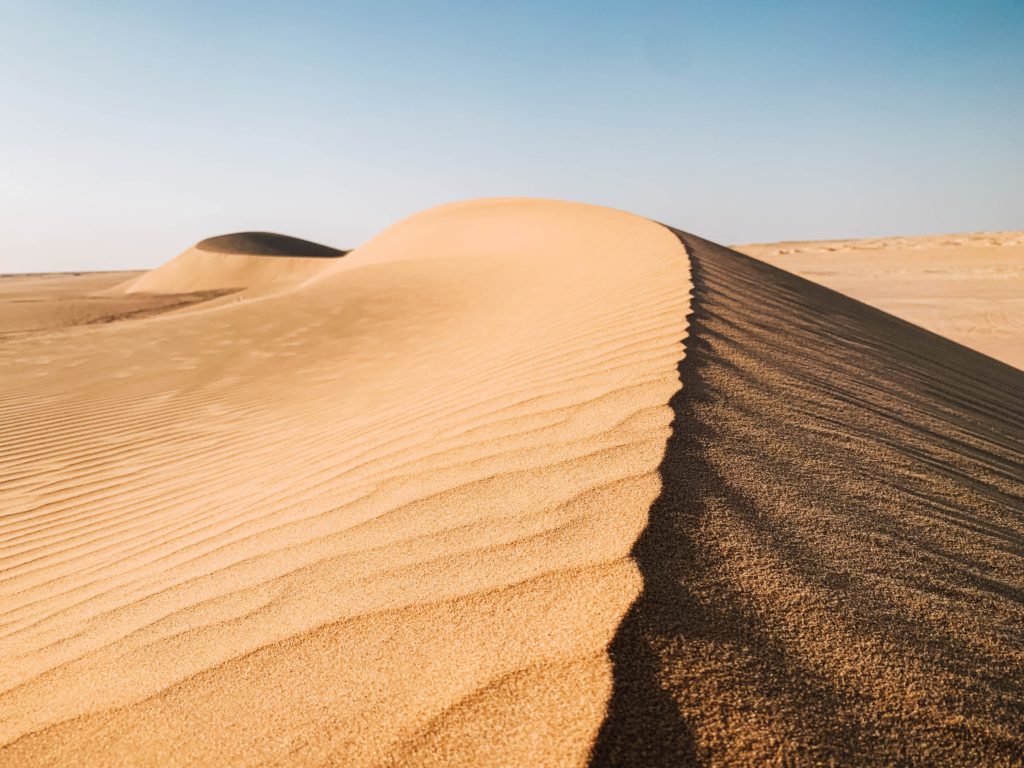By Danica Bornstein, Lead Mental Health Counselor at JFS.
As I’ve been reliving the Passover story this year, I’ve been struck not so much by our escape from the “narrow place” of slavery, nor by our leap towards the wide expanse of freedom. What I’m sitting with this year is our time in the desert, the 40-year journey between the life we left behind and the new place we were moving towards.
That is where I feel we are now, in this time of sheltering in place, of quarantine, of separation, and mourning, and waiting: the desert.
Our tradition teaches us that when the Israelites had left Mitzraim—the narrow place—they cried out to return to the place they had known before. They had manna to eat in the desert but they longed for the “fleshpots” and the home they had left, even if that home was a place of oppression and pain. I also grieve for the life that I did not realize I was about to leave behind.
Why was their time spent in the desert so long? I don’t know that there is any place on this earth that would take 40 years to reach on foot. Tradition tells us that we followed a pillar of cloud in the day and a pillar of fire at night. We must have retraced our steps many times during those years. We must have been lost. And this, too, feels familiar. We are on a journey, and we feel lost.

I was taught that one reason we needed time in the desert was to prepare ourselves for the world we were about to enter. We could not go immediately from being slaves to being a free and self-governing people. This also resonates for me today. We have left behind so much that we have come to know, and we need time to recover, transition, and grieve.
As I walk through our present-day desert, I am struck by two imperatives: The first is simply to survive, as gently and with as much love as we can. And the second, like the ancient Israelites, is to heal in the ways that we can, to ready ourselves for the unknown life that awaits on the other side of the desert.
As a therapist and somatic practitioner—not only going through this experience myself but also supporting others at the same time—I am deeply invested in both of these imperatives. I want us to survive, and be as gentle as we can while doing so. I am not at my best right now, and maybe you aren’t either. I want us to be as patient as possible with ourselves and each other while we are on the journey.
But I also want us to thrive, someday. I want us to continue our healing. Like the ancient Israelites, I want us to use this time to become ready for the life that is to come. I keep asking myself these questions: What do I need to heal in myself during this time? What will enable me to build a more just world, and more equitable relationships? Who do I want to be on the other side of the desert?
I would have never willingly chosen this experience for myself or for anyone else. But I have noticed things transforming in me because the pressure and the pain of the “desert” are simply too great for me not to transform. Times of overwhelming challenge can also be times of deep healing.
I find myself forced to do things now that I avoided in the past. I have often neglected my asthma, but now I wake up each day in love with my lungs, which are softly breathing, in and out, as I write this sentence. And I have often been reluctant to be vulnerable with others, yet now I find myself reaching out to friends just to say, “I am afraid. I am so sad.” I want to be this person on the other side of the desert: The one who holds my own and other bodies as precious and worthy of the deepest care; the one who can connect deeply and allow herself to be seen.
A few weeks ago I heard myself say, “I’m going to let this pandemic break me.” But I didn’t mean that I would let it break me down; I meant that I would let it break me open. As I support others through this time, I am finding the same thing, over and over: The pressures of the desert are pushing on our most tender, most broken places. The pain of it is cruel and overwhelming—but it is also an opportunity, if we choose, to heal where we most need it.
We will reach the other side of this journey. I don’t know when, and I can’t yet envision the new world we will find, but this time in the desert is temporary. We will be there, together, on the other side. My wish for us is that we will be both softer and stronger, more prepared to build a just world together, and more committed to treating ourselves and each other as irreplaceable and precious.
If you need mental health support right now, please contact cas@jfsseattle.org or (206) 461-3240. JFS is here to help, and we offer our services on a sliding scale. We also accept insurance. You can also visit our Counseling & Addiction Services webpage here for more information, as well as our Project DVORA (domestic violence services) page here.



